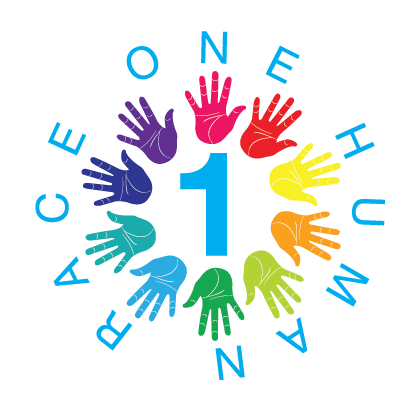One of WNA’s business goals is to create opportunities and platforms to connect with other skilled professionals through formal and informal partnerships. What’s really fun about this is that we get to connect with other like-minded professionals whose work aligns with our vision to create, grow and sustain initiatives that result in positive social outcomes. (As we’ve mentioned previously, this often occurs over coffee!) This blog post begins an occasional series to highlight some of those talented folks and their initiatives and organizations.
This interview is with Sandy Battise, facilitator with the One Human Race Initiative. Sandy is also a Loan Originator with the Gateway Mortgage Group.
 You’re a housing and real estate person. How did you get engaged in facilitating conversations about race?
You’re a housing and real estate person. How did you get engaged in facilitating conversations about race?
It wasn’t directly connected to my real estate and lending; it was through the church side of my life. I was asked to attend a workshop by a friend at church several years ago. That’s how I became aware of the PBS series “Race: The Power of An Illusion” and some other organizations trying to facilitate a conversation about race. At work, I really never made the connection that we needed to be having the same kinds of conversations until I saw a class on the topic and realizing that there is institutional racism in housing and these topics need to addressed in real estate.
How have you been transformed by the process of creating and growing the One Human Race initiative? How has it changed your career path?
It has given me a better understanding of why and how people want to have the dialogue on race. I didn’t realize how much guilt and shame that white people are often dealing with in this process – that burden they were carrying and what do they do with it. I’m used to dealing with it from my side as a black person – the anger and mistrust – but this was a new perspective.
It has made me more tolerant. You have to give people space to come to their own conclusions. As a facilitator, you’re in observation mode. It has been therapeutic for me.
Career-wise, has made me realize how this needs to be integrated in the real estate industry. Because of race – people may not even be aware of the resources to buy a home. That’s why homebuyer education and counseling is so critical. That part of the industry should be highlighted more. Homebuyers need more information up front. It’s a slow process and realization for the industry. It is a benefit to have homebuyer education early in the process rather than later. Why couldn’t someone get a reduction on their FHA loan interest if they do the right preparation upfront?
What is the most challenging part of this work?
To see the tremendous amount of need and how to ramp up to do more. How do we do more workshops, get more people engaged as facilitators. We know we can have change. How do we scale One Human Race is the hardest part. Building the capacity.
I have many leaders telling me, “We need to have a more diverse board, workforce, etc.” The lack of understanding of how to achieve those goals is why I know that we need to scale the initiative. It doesn’t stop just because you put in place a policy, or include diversity on a strategic plan promoting diversity. It does take engaging in a different way, and that’s where I see a role for the One Human Race workshop. Whether it’s government, non-profit, corporate. But participation in the workshops has to be voluntary. We always say “You’re welcome here wherever you are on your journey.” There are people in the workshops who are at many stages of their journey.
Do you see linkages between conversations about race and strategic planning or organizational development? In what way?
I have participated in many strategic retreats. Most organizations strategic plans say they want to have a diverse organization to build a stronger organization. The disconnect is the lack of understanding of how to create the space of how to build a more diverse organization. You can’t develop the process of how to get there without having the conversations about race.
Who’s setting the agenda? Organizations have the best of intentions, but it’s the lack of understanding that you really have to dig deep. It doesn’t stop with putting it in the strategic plan. It must be engrained in the culture of an organization.
It’s about attracting leadership of color. How do you build young, diverse leaders from different ethnicities? How do we attract them?
If I walk into a meeting, and everyone there is white and older, I might wonder if I really want to be there. There is racism; judgement on both sides. When someone new comes in, how do you instantly get them engaged so they don’t disconnect? First impressions are critical.
How is this curriculum different from a standard “diversity training?”
The intent was to make it more organic; more in the flow; allow time for conversations. Many diversity trainings are a one-day activity. We realized that people can engage for 2-3 hours in a workshop, but we need to give them time for reflection afterwards.
In the workshop, we create a space where you have to listen. There is a conversation agreement for the session. We demonstrate the concept of mutual invitation – someone has to be invited to speak. This concept is from Eric Law’s book “The Wolf Shall Dwell with the Lamb.”
Afterwards, people received reflection questions getting them to address “How has race impacted me individually?” We’ve also started a private Facebook group for retreat participants to have a safe place ask safe questions and continue the dialogue.
Would this kind of workshop work equally well for a single organization or for a coalition? What does an organization need to do to prepare? What kinds of questions should they be asking?
Some organizations are at the point of asking critical questions – and those organization are ready for this. If an organization is authentically trying to create a diverse workplace, they would be ready. Often organizations are trying to address these issues through “teambuilding,” but really the issue is about race.
An organization that hasn’t realized they have an issue or problem, they might not be ready to do this yet. They may need to observe peer organizations that have tackled the issue first.
It work equally well with an individual organization or a broader coalition. It’s all about relationships, trust, and personal journeys.
For information upcoming community workshops, visit the One Human Race web site. Sandy is also available to partner with WNA to design a workshop tailored for your non-profit organization, government agency, or collective impact initiative. For more information or to discuss in more detail, contact us.

